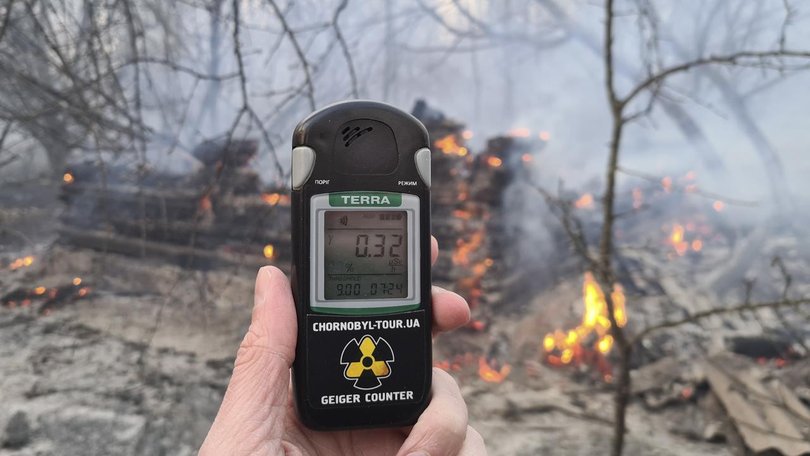THE ECONOMIST: Investors ignore world-changing events such as war, missile crisis, nuclear meltdown
THE ECONOMIST: Why investors rightly ignore world-world changing events.

Missile warfare has erupted in the Middle East. On June 13, as the bombs began to fly, S&P 500 futures fell by 1.6 per cent. But as the hours passed, the stockmarket steadily climbed. The index has now recovered to around 6000, a hair’s breadth from an all-time high.
Such movements reflect a new market mantra: “Nothing ever happens.” The phrase emerged from the depths of 4chan, an online forum, more than a decade ago, and has become a popular meme among youngish investors.
On the face of it, the saying seems wildly out of place in an era of both trade war and conventional conflict. But consider the long list of recent events that at first seemed to have epoch-making potential, only to fizzle out, and it appears more reasonable.
Sign up to The Nightly's newsletters.
Get the first look at the digital newspaper, curated daily stories and breaking headlines delivered to your inbox.
By continuing you agree to our Terms and Privacy Policy.Examples include China’s anti-lockdown protests, the Wagner Group’s rebellion in Russia and skirmishes between India and Pakistan. Xi Jinping and Vladimir Putin are still in charge. Nuclear war has been avoided.
And so cynicism prevails, dips are bought and markets continue to climb. Retail investors are getting in on the act, too. They have piled into stocks, buying $US20b-worth, net, over the past three months. Crisis, what crisis?
The head-in-the-sand approach is a more sophisticated strategy than it first appears, and not just because headlines tend to go over the top.
As far back as 1988, a paper by David Cutler and James Poterba, then both of the Massachusetts Institute of Technology, and Larry Summers, then of Harvard University, sought to establish what really moves stock prices.
The trio looked at almost five decades of world-changing events, from Japan’s attack on Pearl Harbor in 1941 and the Cuban Missile Crisis of 1962 to the Chernobyl nuclear meltdown in 1986.

They were surprised to discover that the volatility of returns on days of a big news event (as measured by the standard deviation) was less than three times as large as an ordinary day. Several of the biggest one-day falls identified by the authors occurred on days without an obvious news-related spark.
Geopolitical threats are often pregnant with all-or-nothing outcomes that are hard to price. This is especially true of the most potentially devastating events, which involve the risk of nuclear war. Take the example of South Korea, which has a stockmarket worth $US2 trillion ($3t) that could be reduced to rubble by its belligerent northern neighbour.
How should an investor price the threat? For South Koreans, hedging against such an outcome is all but impossible. Many prefer to ignore the prospect. Even the so-called Korea discount — the persistent cheapness of South Korean stocks relative to their international peers — is explained by poor corporate governance rather than geopolitical risk, according to Sohyun Kang of the Korea Capital Markets Institute.
Moreover, changes in the global economy are blunting events that once would have prompted turmoil. The oil shock of 1973 and the start of the Gulf war in 1990 both had a sustained impact on stockmarkets.
Today, however, America is an exporter of energy owing to the shale revolution. This keeps its consumers insulated from global affairs. Indeed, climbing global oil prices incentivise more exploration and production in America, boosting the economy. And what happens in America matters, above all else, for global stockmarkets.
The momentum of markets can be relentless. Shares tend to grind higher over time as consumers spend, entrepreneurs innovate and companies grow. Earnings per share for American firms have risen by 250 per cent or so over the past 15 years. For any event to have a meaningful impact, at least for longer than a few days, it must harm such dynamism.
Even President Donald Trump’s tariffs — which, unlike lots of geopolitical risks, have a direct and material impact on the bottom line of many firms — have not been enough to break the growth engine that has powered the American stockmarket beyond all competition. Expected earnings of firms in the S&P 500 index over the next 12 months are, at $US263 ($404) per share, very narrowly above where they were before Donald Trump’s “Liberation Day” announcement.
Of course, an event of sufficient scale to rattle markets may be on the way. That would upset the dip-buyers.
But what appears to be a witless stampede into stocks, even in moments of international tension and conflict, is really an appreciation of the power of capitalism.
The news that matters tends to come from the real economy or financial system — not the world’s battlefields.
